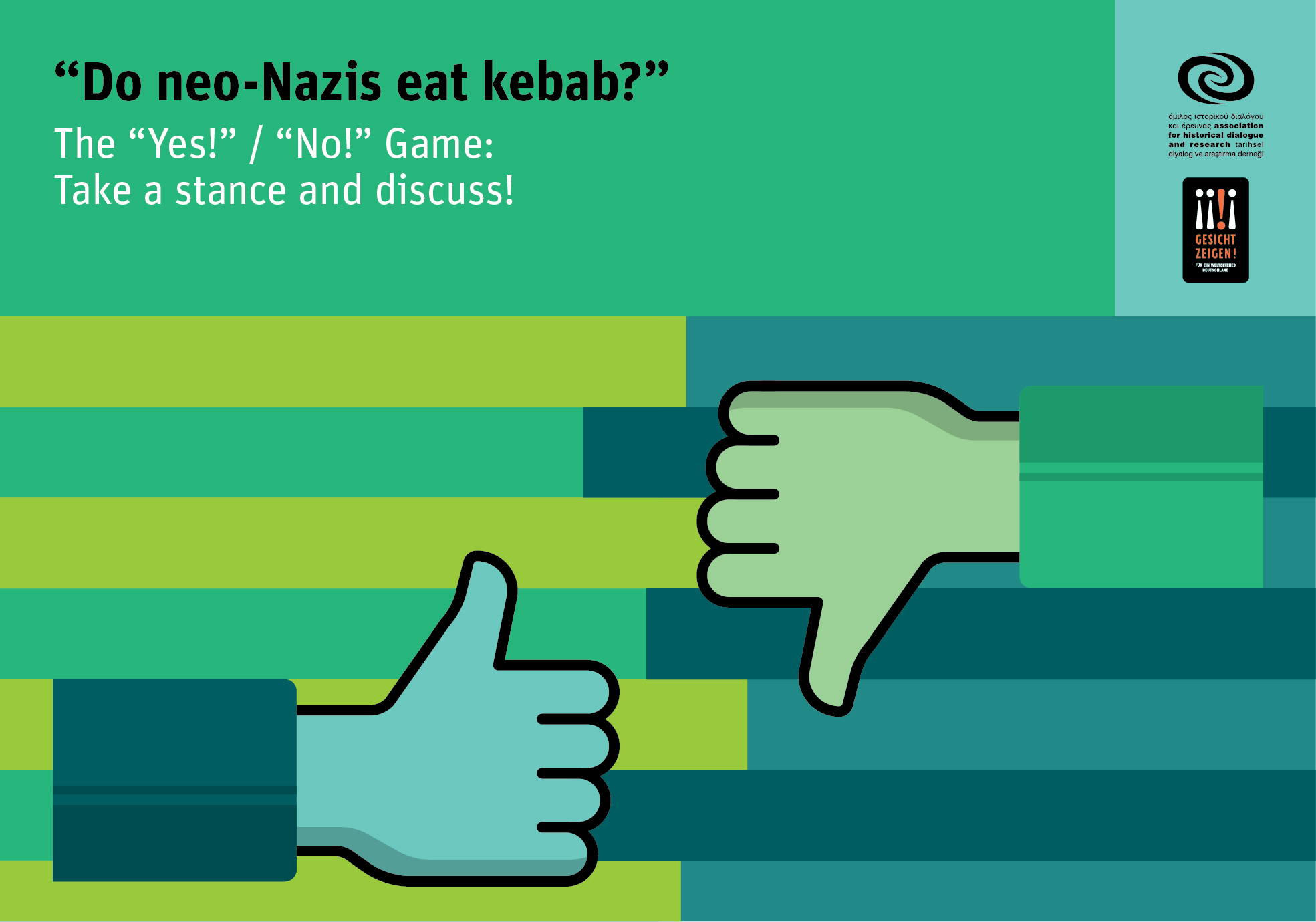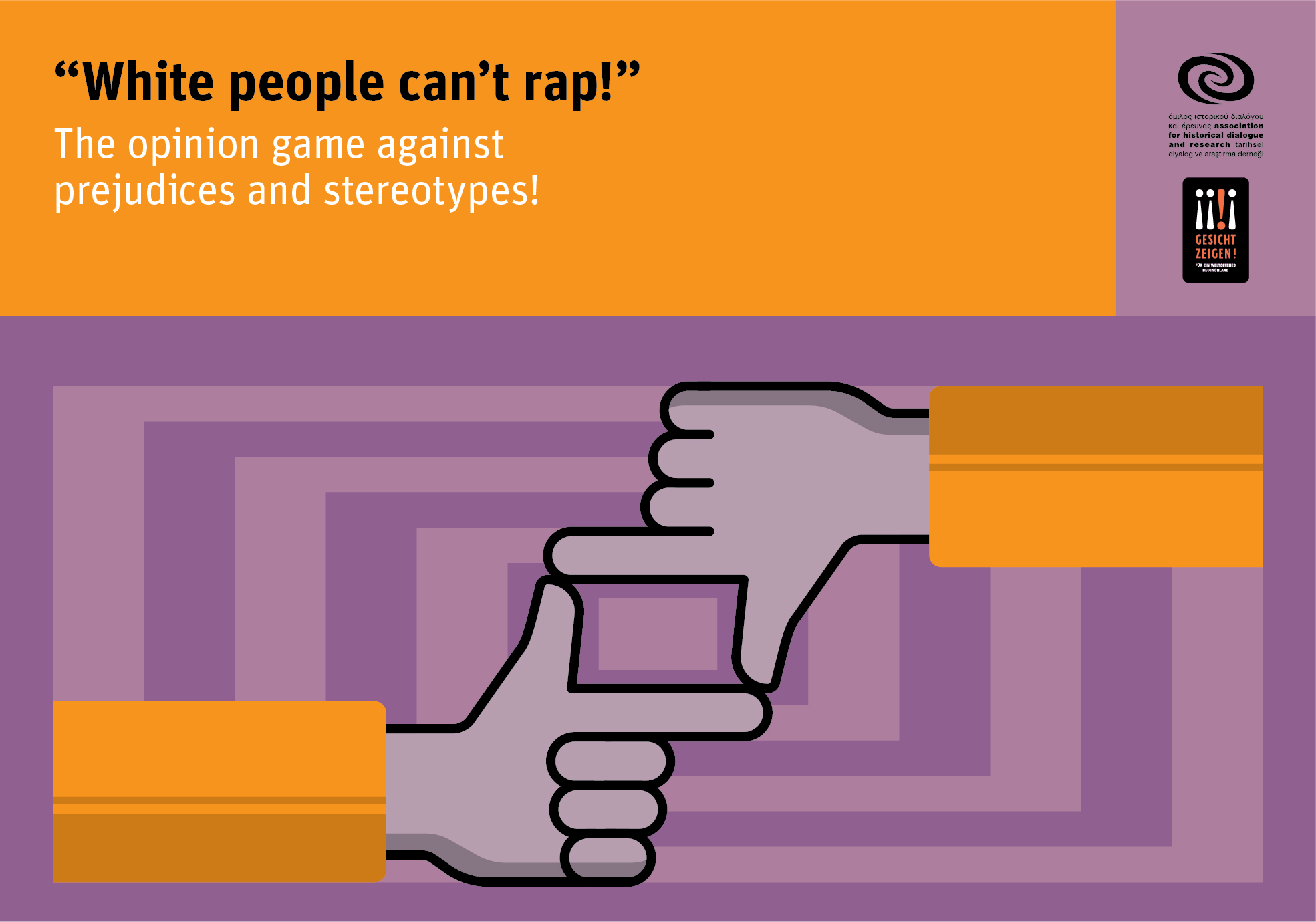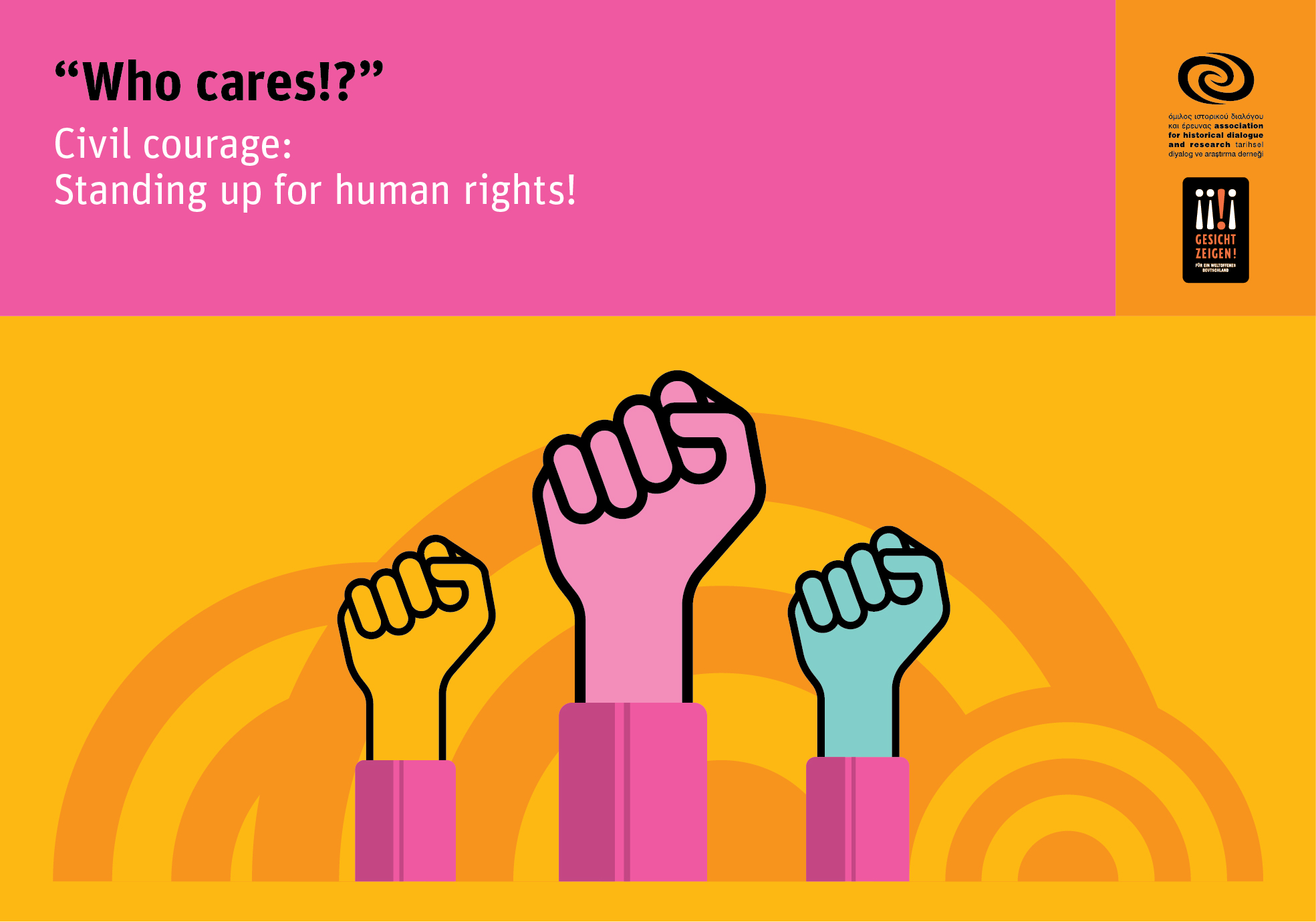The Anti-racist Educational Materials developed by AHDR in collaboration with German NGO Gesicht Zeigen!
In 2020, the AHDR started collaborating with German NGO Gesicht Zeigen! on a series of projects on Anti-racist Education. It is in this context that the co-production of the current educational material became a reality. The two organizations would like to call on and encourage active participation in a democratic, diverse society and promote the exploration of difficult topics such as identity, democracy, gender, and diversity, by introducing innovative methodologies and concepts in a motivating and entertaining way.
Gesicht Zeigen! is known for its innovative educational work with people from all ages. It is important for the organization to offer colourful and easy to use interactive material that motivate participants to engage with each other and tackle tough issues like discrimination. After the success of the first very limited editions of the games, they have been redeveloped and are now widely available through the publisher Beltz. These games, originally developed for the context of German society, were the basis of the new translated and adapted editions.
The Anti-Racist Educational Materials
By engaging teachers and students via educational materials, AHDR is using an innovative tool to inspire awareness, promote dialogue and collaboration and initiate action for social transformation. The educational materials also contribute to the promotion of active citizenship among youth, using fun, attention-grabbing and thought-provoking methods to inspire compassion, empathy, equality and human rights values. Hence, students and teachers are encouraged to become agents of change in society rather than bystanders, which strengthens civil society. It is not enough to not be racist, we need to proactively influence positive change, act against injustice and foster social co-existence and peace at all levels.
We believe that even difficult topics can be dealt with in a playful way and we invite you to join us to envision the type of society we want to live in and start conversations about ‘difficult societal issues’ in an open, honest and non-judgemental dialogue.
Overview of the material:
1. “Do neo-Nazis eat kebab?” The “Yes!” / “No!” Game: Take a stance and discuss!
It provides students and teachers a chance to take a stance on social issues and discuss them by suggesting questions on social topics such as democracy, gender, migration and personal lifestyle e.g. “Do you think that you are an important part of society?”; “Do you think that there are too many ‘foreigners’ living in Cyprus?”; “Is cooking a woman's business?”. Students answer with a “Yes!” or a “No!” based on their first reactions and then teachers moderate a discussion based on the answers. This is an exchange in which there no given ‘right’ or ‘wrong’, and demonstrates that all people have their own stance and opinion. How we answer such social-related questions is fundamental for shaping our coexistence and our commitment to principles of democracy and justice.

2. “White people can’t rap!” The opinion game against prejudices and stereotypes!
It aims to create awareness in order to recognize statements and opinions with discriminatory, sexist, homophobic and racist content and to identify the differences between prejudices, stereotypes and discrimination. It also offers background information and facts against common prejudices. Students are able to identify and discuss stereotypes in a playful way, e.g. "All blacks have rhythm in their blood", "Foreigners commit more crimes than Cypriots", "Gays don't play football". Participants listen to the opinions and select their position cards accordingly, which range from “So racist!” to “Good!”, initially revealling individual attitudes towards different statements, which trigger and encourage dialogue. The information cards help by providing up-to-date facts and background knowledge on the opinions. Teachers, non-formal education practitioners and youth trainers can motivate participants to ask questions, discuss and try to persuade each other. The game moderator uses the info card to help classify and clarify the opinions. Anyone who would like to change their position at any point during the discussion, for example because other arguments are convincing, is welcome to do so.

3. “Who cares!” Civil Courage: Standing up for Human Rights!
It aims to introduce youth to the concept of civil courage, fostering awareness of their role as active citizens and encouraging them to actively shape fairer and more inclusive societies. It makes it clear that there are different courses of action in every situation, demonstrating that one can consciously make a choice under most circumstances. Our aim is to give guidance on what we call 'civil courage'. By this we mean: standing up for others, getting involved and speaking up when others are silent or human rights are violated. These situations unfortunately occur all too often in our everyday life. If someone is insulted or harassed, do I walk by or do I step in? If someone says something disrespectful, do I pretend to have heard nothing or do I express my disagreement out loud? E.g. “A young black woman is racially insulted on the bus. How would you react? Would you go with A, B, C or D?”. The important thing is that it’s not about right or wrong. It’s about developing a point of view and justifying it. Civil courage is required in many situations. But what exactly is civil courage? And how is this attitude developed? With this game you and your group can find answers to these questions.

Racism and the Educational Approach adopted in the material
Racism, or racial discrimination, as defined by the European Commission is “any distinction, exclusion, restriction or preference based on race, colour, descent, or national or ethnic origin which has the purpose or effect of nullifying or impairing the recognition, enjoyment or exercise, on an equal footing, of human rights and fundamental freedoms in the political, economic, social, cultural or any other field of public life.” Given this definition, it is easy to recognise that racism - in its various forms as well as entanglements with other forms of structural injustice and violence such as sexism, nationalism, extremism, classism, colonialism etc. - is present in all sectors of our society. There is however a lack of anti-racist education and educational materials in Cyprus, and this project seeks to address this deficit.
The vision behind the production of the educational material is to convene teachers, students, and researchers from various disciplines to explore practical ways to understand and address racism, injustice, and inequity. Hopefully, this project will foster further dialogue on issues of racism and, eventually, inspire action aiming at social transformation.
As in the case of other projects, the Association for Historical Dialogue and Research (AHDR) envisions bringing about a paradigm shift in the way we think about issues of diversity and racism in education in Cyprus. The AHDR believes that racism is a major component of a culture of violence which is also manifested through gender inequalities, militarization, violation of human rights, lack of compassion and empathy, poverty and environmental degradation, to name a few. To this end, the Association aims at addressing the challenges and deficiencies of social structures in Cyprus and elsewhere that maintain perceptions and attitudes against basic human values such as the acceptance of diversity, intercultural respect, reconciliation and solidarity. It is imperative for the Association to identify the problem at its root and to plan innovative actions in order to educate children and teachers effectively.
Gesicht Zeigen! and Association for Historical Dialogue and Research, through this partnership, encourage people to take action against racism, discrimination, xenophobia, extremism and violence. The aim is to raise awareness of all types of discrimination and to strengthen civil society engagement.
Disclaimer: This project is being implemented by The Association for Historical Dialogue and Research (AHDR) in collaboration with Gesicht Zeigen! and the funding is provided by The Federal Foreign Office of Germany.
